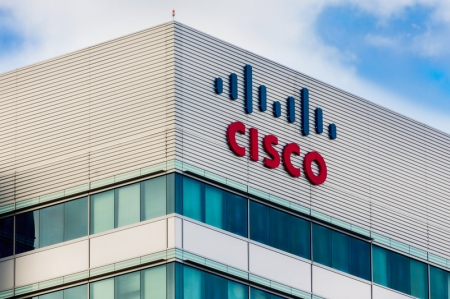Generally speaking, a company’s inability to pay off debt—either through capital raising or its own cash flow—is the first sign that it poses a serious issue. The process of ‘creative destruction’ in which financiers ruthlessly liquidate failing enterprises is an inherent feature of capitalism. But a more common (though still expensive) scenario is when a business has to issue shares at deeply discounted prices, therefore permanently diluting shareholders, in order to support its balance sheet. Debt, of course, may be a useful tool for businesses, especially those that require a lot of cash. Examining a company’s cash and debt combined is the first step in determining its debt levels.
According to the most recent balance sheet data, Cisco Systems had obligations totaling US$27.0 billion that were due in less than a year and US$26.5 billion that were due beyond that. Nonetheless, it had US$8.25 billion in receivables that were past due within a year and US$23.5 billion in cash. Therefore, its liabilities exceed its cash and near-term receivables combined by US$21.8 billion.
Considering that Cisco Systems has an enormous market value of US$194.6 billion, it is unlikely that these liabilities would cause significant harm. However, there are enough liabilities that we would strongly advise shareholders to keep an eye on the balance sheet moving ahead. It’s reasonable to assume that Cisco Systems does not have a significant debt load given its net cash position and notable obligations!
It’s also encouraging that Cisco Systems’ EBIT increased by 17% in the previous year, demonstrating its improved debt management capabilities. When assessing debt, it is evident that the balance sheet should be your first emphasis. But more than anything else, Cisco Systems’s capacity to have a strong balance sheet in the future will depend on its future earnings.
Ultimately, accounting earnings are insufficient for a corporation to pay off debt; it requires free cash flow. Even if Cisco Systems’ balance sheet shows net cash, it’s still important to examine how successfully the company converts earnings before interest and tax (EBIT) to free cash flow, since this will affect the amount of debt it needs to pay down and its ability to manage it. For the past three years, Cisco Systems has actually generated more free cash flow than EBIT, which is good news for stockholders. Strong revenue generating like that makes us feel as happy as a puppy dressed as a bumblebee.
Despite having more liabilities than liquid assets, Cisco Systems nevertheless has $15.9 billion in net cash on hand. The icing on the cake was that US$17 billion was made when 101% of the EBIT was converted to free cash flow. Thus, is the debt of Cisco Systems risky? We don’t think that’s the case. If Cisco Systems insiders have been grabbing up shares, we would be thrilled to see it.

